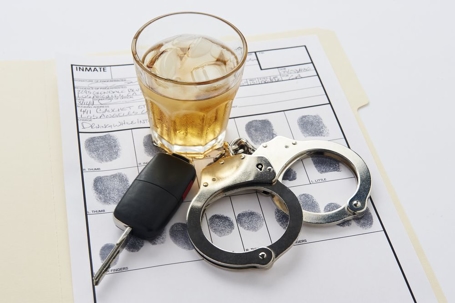In the state of Ohio, there are certain charges a person can receive if they are under the influence of alcohol or drugs. Generally, these are distinguished by the acronyms DUI, DWI and OVI. It is important to know what these means and the differences between the charges.
What is a DUI?
A DUI is also known as driving under the influence. It refers to a person being behind the wheel while under the influence of drugs or alcohol. In order for a person to be charged with a DUI, it must be determined that their blood alcohol concentration or BAC is over the legal limit of 0.08. A DUI is normally charged as a misdemeanor but can be increased to a felony if the car accident results in property damage, injuries or the death of another person. DUI is a term that is common in many states but is no longer used in Ohio.
What is a DWI?
A DWI, also known as driving while impaired or driving while intoxicated, means essentially the same thing as a DUI. It refers to a person being intoxicated or impaired by alcohol or drugs while they’re driving. Like DUI, the term DWI is no longer used in Ohio.
What is an OVI?
An OVI is also known as operating a vehicle under the influence. This means the same thing as a DUI in other states and has been the term in the state of Ohio since 2004. If a person is behind the wheel while under the influence of drugs or alcohol and has a BAC greater than 0.08, they can be charged with an OVI. Additionally, unlike a DUI, a person can be charged with an OVI even if they are not actually operating the vehicle. If they are simply sitting in a parked or idling car and are determined to be impaired, they can be charged.
Being Charged with an OVI
In order for a person to be charged with an OVI, their BAC must be over 0.08, 0.02 for drivers younger than 21 and 0.04 for commercial drivers. Ohio also has a law known as implied consent, which means if a person refused to submit to a chemical test, their license is automatically suspended and they will receive a mandatory fine.
If a person is charged with this crime, it is imperative that they get in touch with an experienced criminal defense attorney. An OVI charge can potentially be reduced to a wet reckless, which is a charge that comes after a plea bargain. A wet reckless generally refers to driving when the amount of alcohol in a person’s system is borderline illegal and there was no accident. It is usually agreed upon if the defendant has no prior drunk driving record.
If you have been arrested on an OVI charge, it's important to contact an experienced criminal defense attorney at your earliest convenience. Call the Meranda Law Firm to discuss your case today.

